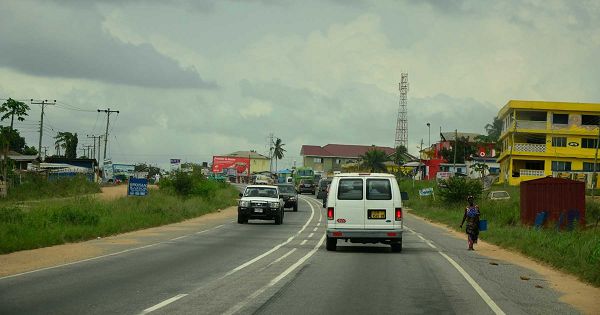
Our roads are killing us!
The BBC on Friday, December 8, 2018, highlighted figures by the World Health Organisation (WHO) that road accidents are now the biggest killers of children and young adults, with Africa having the worst rate of traffic deaths in the world due to that.
That is shocking! Indeed, the statistics must get all governments worried, as it was further highlighted that, "car accidents are now the leading global cause of death among children and young adults aged five to 29 years old," and also that road accidents are claiming more lives than HIV/AIDS, tuberculosis or diarrhoeal diseases.
The WHO data, quoted by the news medium, said about 1.35 million people were killed in car accidents around the world in 2016.
Apart from insufficient speed limit laws in most African countries, a dearth of infrastructure, particularly for pedestrians and cyclists, made the continent also one with the highest rate of pedestrian and cyclists deaths.
Prior to that information, the Chief Executive of the National Road Safety Commission (NRSC), Ing. May Obiri-Yeboah in an interview with an FM station, lamented the non-use of footbridges adorning the country’s highways, particularly those on the Tetteh Quashie stretch to Lapaz.
The reporter in that news item had varied responses from commuters interviewed on that stretch about why they chose to dangerously ran through several lanes of a highway, rather than use the footbridges.
Some said that the footbridges were further away from where they had to cross, others said that they did not even know there were footbridges to be used, while another said being a stranger in the area, she had been given specific directions to cross the highway at a point, not by the use of the footbridge.
The responses by commuters show that road users prefer convenience in the use of foot bridges.
It defeats the purpose of safety, if commuters are sidelined and road technocrats use all the technicalities in construction to site footbridges at points that commuters find difficult to use.
But, even if, because of some technical aspects, the footbridges on the Lapaz route had to be constructed at the positions they are at now, does the NRSC have to throw its hands up in despair and do nothing? I think not.
The NRSC is supposed to be a research cum lobby organisation in relation to safety on our roads.
What research has it undertaken on why Ghanaians do not use footbridges? How has it confronted commuters with this information. What has it done so that we change out attitudes in the use of footbridges for safety?
Knowledge is ennobling! It makes life easier. In advanced countries, citizens are served with knowledge by their governments, not treated like nitwits, who might run amok with information, as Parliamentarian KT Hammond sought to portray some weeks ago when the passage of the Freedom of Information Bill came up again for the umpteenth time.
Arming citizens with knowledge and sensitising them to using footbridges is important.
Maybe, with the information from the WHO, the NRSC must re-strategise on getting citizens use the little infrastructure there is on our roads.
It would be nice to see members of the Commission in their T-Shirts sensitising me as I try to ran across the highway on why it is better to sweat some more, exert myself and climb the bridge than running across it and being sorry because of an accident I may cause, that could even claim my life or leave me injured for life.
It would be great to see them sitting to think through the issues about why we do not use footbridges, the inconvenience and all, and making counter engaging arguments to win me over so that I make the use of the footbridges my culture.
The NRSC cannot control when government constructs roads and basic fixtures to make them safe to use.
However, it can control pedestrian behaviour through research and its use to achieve a change in behaviour.
